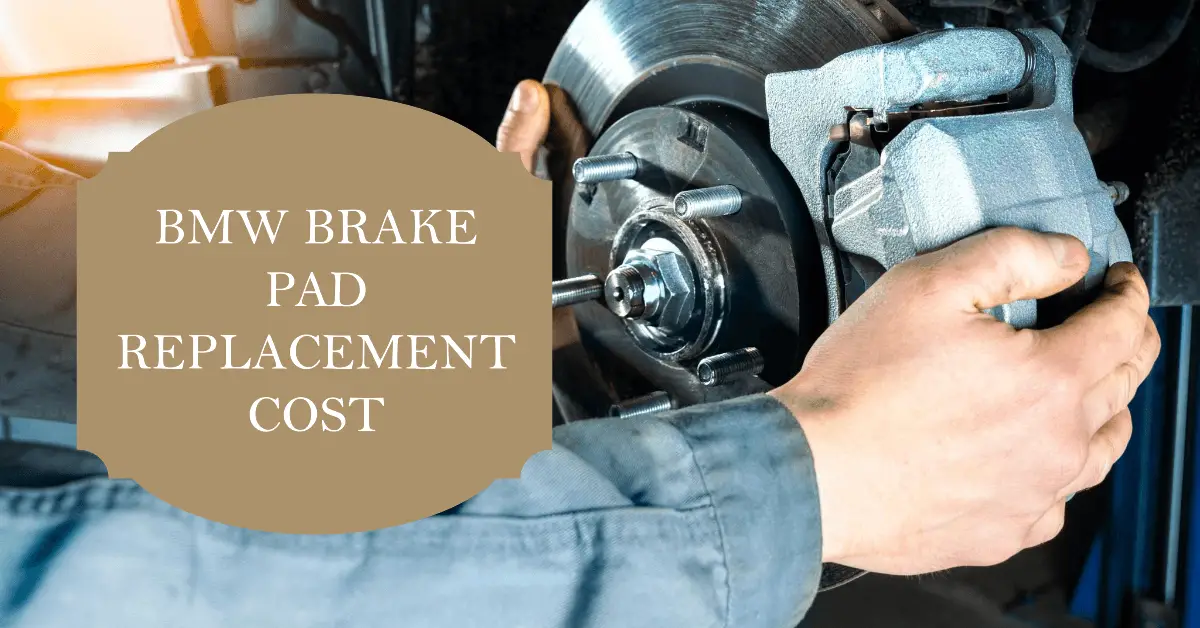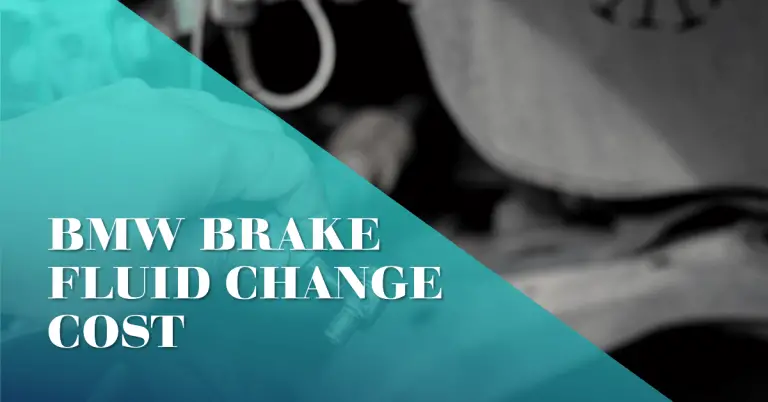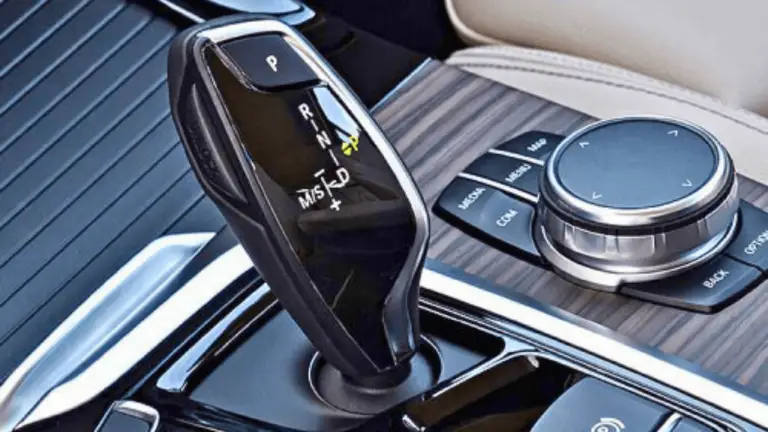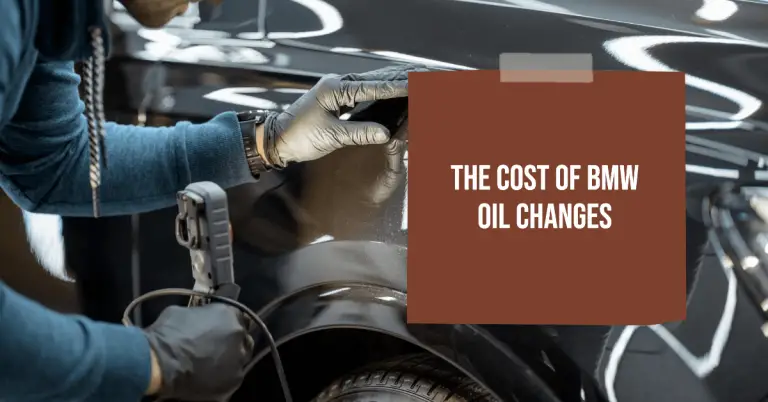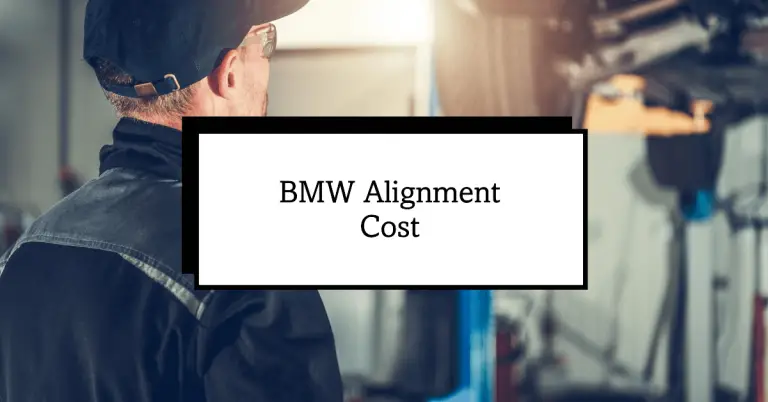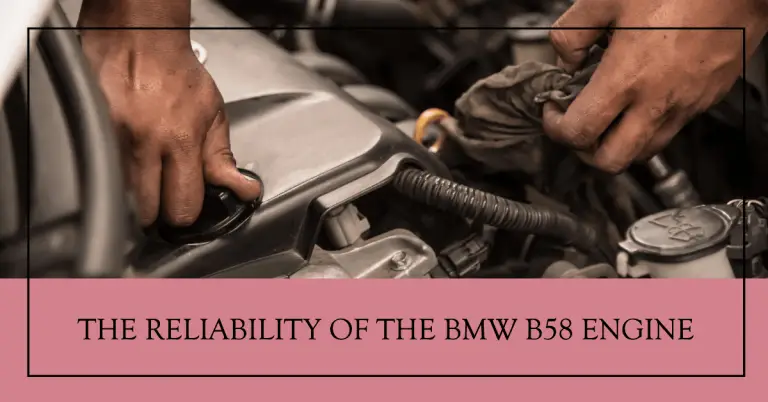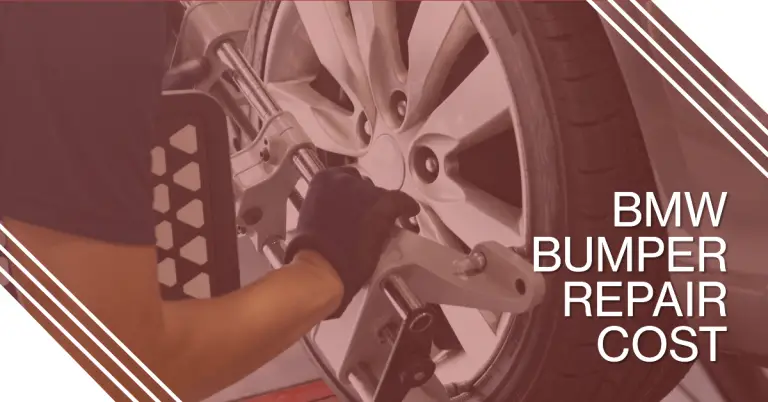BMW Brake Pad Replacement Cost: How Much Should You Expect to Pay?
Owning a BMW comes with higher maintenance costs than non-luxury vehicles, especially when it’s time for repairs like brake pad replacement. But how much should you actually expect to pay?
The average total cost to replace the front and rear brake pads on a BMW ranges from $250 to $600. Prices depend on the BMW model, shop hourly rates, location, and type of brake pads used. Just replacing the front pads typically costs between $150-300 on average.
In this detailed guide, we’ll cover:
- The key factors that influence BMW brake pad replacement costs
- Typical labor times for front and rear brake pad service
- Tips to save money on your BMW’s brake job
- When to replace rotors along with brake pads
- How brake pad prices compare between dealerships and independent shops
- The difference in OEM and aftermarket BMW brake pad prices
- Recommended brands for quality aftermarket BMW brake pads
Gaining an understanding of what impacts the cost of your upcoming brake service allows you to budget accordingly and make an informed decision when presented with a repair quote. Let’s dive in!
How Much Does It Cost to Replace BMW Brake Pads?
The total brake pad replacement cost for your BMW will depend on a combination of:
- BMW model – Parts and labor times vary by Series, body style, and year
- Shop hourly rates – Dealerships charge higher rates than independent mechanics
- Location – Costs are higher in major metro areas vs rural regions
- Brake pad brand – OEM vs aftermarket pads have a huge price difference
On average, you can expect to pay the following brake pad replacement costs by BMW model:
- 1 Series – Front and rear pads: $250-400
- 3 Series – Front and rear pads: $300-500
- 5 Series – Front and rear pads: $350-550
- 7 Series – Front and rear pads: $400-600
- X3, X5 SUVs – Front and rear pads: $300-550
- M Series – Front and rear pads: $400-600
Keep in mind that just replacing the front brake pads on a BMW is cheaper, averaging between $150-300. The rears tend to last longer before needing replacement.
While you may find ads online boasting crazy low prices like $39.99 for BMW brake pads, be very cautious of this type of deception. Between quality brake parts and professional labor, you can expect to pay at least $250 for a full front and rear brake pad replacement on even an older base model BMW.
Next, let’s look at why prices for this common service can vary so much between different models, repair shops, and regions.
Key Factors That Influence BMW Brake Pad Replacement Cost
Several important variables affect how much you’ll pay when it’s time to replace the worn out brake pads on your BMW:
BMW Model Year, Series, and Body Style
Not surprisingly, the larger, more luxurious, and higher performance BMW models cost more for brake work due to increased labor times and bigger, more advanced brake components:
- Luxury models like the 7 Series require more time and have larger brake pads, commanding higher parts and labor prices.
- SUVs like the X3, X5, and X7 also take longer for service and have larger pads to stop their heavier weight, adding to costs.
- High-performance M Series models have larger and more robust brake systems designed for intense heat and braking forces, using bigger pads and rotors that cost more to replace.
- In general, newer BMW models from 2016-on have more sophisticated electronic brake control systems that take more labor time during brake pad swaps. Their advanced brake pads also come at a premium price.
Brake Pad Brand: OEM vs Aftermarket
The brand of brake pads used, either OEM BMW or aftermarket pads, makes a huge difference in parts costs. This accounts for one of the biggest price variances you’ll see in quotes:
- Genuine BMW OEM brake pads can cost 2-3 times more than quality aftermarket brands. Front OEM pads typically run $250-$500 or more just for parts.
- Premium aftermarket brake pads meet or exceed OEM standards while costing significantly less. You can get quality aftermarket front pads for $100-$150 for parts cost.
So while genuine BMW pads carry the BMW name and are the default choice of dealership service departments, you can save big on parts through reputable aftermarket brands without sacrificing performance.
Dealership vs Independent BMW Mechanic
Where you have your BMW’s brake service performed also seriously impacts overall costs. Due to higher shop overhead and specialized training, dealership service departments charge significantly higher hourly labor rates.
- At a BMW dealership, expect to pay total shop rates ranging from $150-$200 per hour on average nationally. Some major metro areas are above $200/hour.
- Independent BMW mechanics typically charge $70-$120 per hour for labor, representing big potential savings with rates often half those of dealers.
- Independent shops also tend to complete brake jobs faster than dealerships based on specialization.
So unless you need dealer-only computer reprogramming as part of the service, you’ll pay a premium rate for the same work at the dealer. Independent specialists represent one of the best ways to save on BMW maintenance and repairs.
Location of Repair Shop
The geographic area where your BMW gets brake service also drives pricing. In general, you can expect to pay more for parts and labor rates in areas like:
- Expensive major metro urban centers such as New York City, San Francisco, Los Angeles, and Miami
- Rural locations where there are fewer repair shops also tend to have higher rates due to less competition
On the flip side, mid-sized cities and less costly suburbs offer cheaper brake replacement quotes on average.
How Long Does It Take to Change BMW Brake Pads?
Along with parts costs, the labor time a shop charges for installing new BMW brake pads greatly impacts overall pricing. Labor time varies by model, year, and if just the front or full front and rear pads are being replaced.
On average, total full front and rear BMW brake pad replacement takes 1.5-3 hours of labor depending on the model. More time is needed for larger luxury models, SUVs, performance variants, and newer BMWs with advanced brake systems. Just replacing rear pads typically takes 0.5 – 1 hour less than the fronts.
Here are the typical average labor hours for brake pad replacement by BMW model and front vs rear service based on manufacturer recommended times:
Front Brake Pad Replacement Labor Time
- 1 Series – 1.5 hours
- 3 Series – 2 hours
- 5 Series – 2.5 hours
- 7 Series – 3 hours
- X3, X5 SUVs – 2-2.5 hours
- M Series – 2.5-3 hours
Rear Brake Pad Replacement Labor Time
- All models – 0.5 – 1 hour less than front pad service
Keep in mind if you need other repairs done like brake fluid flushes/changes or rotor resurfacing, this adds to the total labor time. Combining services into one visit can save money compared to coming back multiple times.
5 Tips to Save on BMW Brake Pad Replacement
Follow these tips when getting quotes on your upcoming BMW brake service to help minimize costs while still ensuring quality:
1. Get Price Quotes From Multiple Shops
This first step is critical to saving money on your BMW’s maintenance. Costs for the exact same brake job can vary over $200 between different mechanics. Get at least 3 quotes from a mix of dealerships and independent shops. Come armed with your BMW’s year, model, and mileage so they give you personalized quotes.
1. Get Price Quotes From Multiple Shops
Opt for premium aftermarket pad brands over ultra-pricey OEM parts. Brands like Akebono, Brembo, EBC, Hawk, and others offer pads that meet or exceed BMW OEM specs for much less. You still get quality components that are safety-tested without overpaying. Stick with top brands for performance, longevity, and warranty protection.
3. Use an Independent BMW Specialist
Due to lower overhead and specialized expertise, independent mechanics routinely offer big savings on labor rates over dealerships for repairs like brake jobs. Find a reputable independent shop with experience working specifically on BMW models. Check reviews and ask for referrals from BMW owners in your area.
4. Ask for Brake Fluid Flush Pricing
BMW recommends periodically flushing old contaminated brake fluid to maintain the hydraulic system. If it’s been over 2 years since your last brake flush, have the shop check the fluid and include this service at the same time as pads if needed for added savings and convenience.
5. Look Out for Coupons and Specials
Many independent shops run seasonal brake service coupons and specials around spring time when demand spikes. The coupons typically offer $20-$50 off brake services to attract customers during slower months. Check shop websites, social media, mailers, and look online for printable brake coupons to potentially stack onto additional savings.
Being a savvy consumer when it comes time for brake work allows you to save money while still getting quality service performed by trained professionals. Investing in new BMW brake pads and regular service keeps your vehicle’s stopping power in top shape.
When Do You Need New Brake Rotors Too?
In addition to brake pads wearing out over time, the rotors also gradually thin from friction through normal use. Rotors should be measured and inspected once pads are removed, and resurfaced or replaced if below specifications.
Excessively worn brake rotors will cause issues like pulsation through the brake pedal when applying pressure. Thin rotors are also prone to warping and cracking.
In general, BMW brake rotors can be resurfaced if 4-5mm of thickness remains. Thinner than this and they should be replaced. Check rotor condition regularly when servicing pads. The shop can also advise if resurfacing or replacement is needed.
Figure resurfacing or new rotors into your budget if they are nearing their wear limit. Combining this service with pads saves money on labor compared to coming back later.
OEM BMW Brake Pad Prices vs Aftermarket Pads
As mentioned earlier, one of the biggest factors affecting BMW brake pad replacement costs is the brand of pads used. Let’s look closer at the price differences between OEM and aftermarket brake pads:
Genuine BMW brake pads bought through the dealership are extremely expensive. Their main advantage is the BMW name stamped on them. But you pay a big premium just for the branding:
- Front BMW OEM pads: $250 – $500+
- Rear BMW OEM pads: $150 – $350
Aftermarket BMW brake pads from quality brands cost much less – generally half the price or more vs OEM pads.
The material, engineering, and performance is very similar and meets all safety standards. Aftermarket pads just cut out the BMW markup.
- Front aftermarket pads: $100 – $150
- Rear aftermarket pads: $75 – $120
Brands like Akebono, Brembo, EBC, Hawk, and Wagner have specialized in high-end brake pads for decades and offer pads specifically engineered for BMW models. You still get pads designed to handle your BMW’s braking forces without overpaying for the BMW emblem on them.
Many independent BMW shops install quality aftermarket pads in their brake service packages that include pads and labor. This offers major savings over what you’d pay at the dealership with OEM parts.
Recommended Aftermarket Brake Pad Brands for BMWs
Installing reputable aftermarket brake pads is a great way to save money without compromising on safety and performance. Here are some of top brake pad brands for BMWs:
- Akebono – Akebono is a leader in high-end brake technology, supplying OEM pads to various vehicle makes. Their aftermarket BMW pads are engineered specifically for each model using advanced materials. Backed by Akebono’s warranty.
- Brembo – Brembo is another renowned OEM brake system supplier that offers BMW-specific pads. Their pads feature original equipment quality fit and performance. Covered by Brembo’s warranty.
- EBC Brakes – EBC is one of the most trusted names in aftermarket brake pads and rotors. They have an extensive BMW pad range with compounds engineered for street use up to track-level performance.
- Hawk Performance – Hawk is renowned in braking and focuses extensively on producing high quality aftermarket BMW brake pads that meet or beat OEM specs at budget-friendly pricing.
- Wagner – For affordability without sacrificing quality, Wagner makes a great BMW pad option. Their ThermoQuiet pads are OE-matched and provide advanced noise dampening technology.
Sticking with top brands ensures you get properly engineered pads for safe braking performance in your BMW model. They also back their products with warranties for peace of mind.
Conclusion
Regularly replacing worn brake pads and staying on top ofinspections allows you to take proactive approach to maintaining this critical system in your BMW.
Understandingfactors like model, shop rates, brand of pads used, and location that influence BMW brake pad replacement costs empowers you to make a budget-savvy decision. Seeking out quotes and using tips in this guide can potentially save you hundreds of dollars.
The small upfront investment in new quality brake pads pays dividends through improved stopping power and safety, while protecting more expensive components like rotors from premature wear. Check your BMW’s pads at each service interval and get them swapped once they reach their wear limit.

